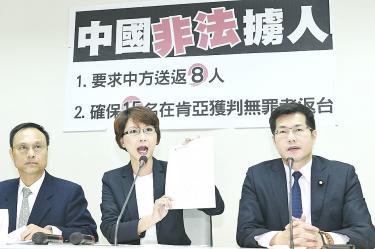The results of the nine-in-one elections in November 2014 and the Jan. 16 presidential election, not to mention a whole range of opinion polls, show a number of important things, and do so beyond any reasonable doubt. That is that an absolute majority of Taiwanese oppose President Ma Ying-jeou’s (馬英九) pro-China policies; believe that Taiwan is a sovereign, independent nation; have an unshakable faith in democracy, freedom and human rights — ideals they should continue to strive toward; and agree that Taiwan’s future should be decided by Taiwanese, and Taiwanese alone.
|
|||
|
|
|||
| Page 746 of 1529 |
Newsflash
Former first lady Wu Shu-jen (吳淑珍) has been ordered to report to Taichung Prison’s Pei Teh Hospital next Friday to undergo an evaluation to see if she is well enough to serve a lengthy jail sentence, her son said yesterday. Chen Chih-chung (陳致中) said his family was deeply worried about the decision by judicial authorities because his mother, who is paralyzed from the waist down, cannot care for herself on a daily basis. |












